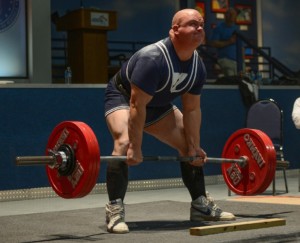
So, are tall people really stronger than short people?
Ever wonder if it’s really true that tall people are stronger than short people?
A lot of folks think so, including Hollywood. Ever notice that the thug who intimidates someone in a sitcom or even a serious movie is almost always taller?
The implication is that tall people are stronger and/or better fighters than short folks.
Between training men and women of all heights, and having worked out at many health clubs over the years, I have observed men and women of all heights lifting weights.
Guess what, folks: Being tall or short has no bearing on how much weight can be lifted: pressed outward, pulled inward, hoisted off the floor or carried around.

I wrote another article about strength and pointed out that a big tall woman isn’t necessarily more efficient at fighting off a man than is a smaller woman.
A reader posted a comment asking why the heavier, taller woman wouldn’t have an advantage.
Actually, she would, from the perspective of a man trying to knock her to the ground or pick her up and drag her.
It would be easier for a man to knock a shorter, lighter woman to the ground or pick her up. Also, height is worthless if you can’t throw a punch.

But I’m talking about sheer strength and power here.
As a former personal trainer, I’ve had short men and women lifting the same amount of weight as my tall clients: deadlift, any type of squat, leg press, bench press, overhead press, dumbbell curl, you name it.
Furthermore, every time I see a man at the gym bench pressing some godly amount, he tends to be on the short side.
In fact, there is a man at one of the chain clubs I work out at, who can bench press over 400 pounds. This man can’t be taller than 5-5.
Though a six foot tall woman isn’t necessarily stronger than a 5-3 woman (if she is stronger, in terms of absolute power, it has nothing to do with height) — the tall woman actually does have an advantage in certain situations.
Being six feet tall will not give this woman an advantage over a short woman in picking up a 30 pound sack of dog food from the floor.
However, what if both women are told to place that 30 pound bag on a shelf that’s 5’9” high?
The tall woman can place the heavy bag on the shelf without raising her elbows above her shoulders.
However, the short woman must raise her arms considerably above her shoulders to get the bag on the shelf.
Because she is shorter, she must perform a greater range of motion to make the reach, placing more stress on the shoulders – and this requires greater effort, more exertion, and hence, the task will be more difficult for her.
But this doesn’t mean she is physically weaker than the tall woman. In fact, the short gal may very well be stronger than her much taller friend.
Let’s see how well the taller woman does at hoisting a 30 pound bag atop a shelf that’s six inches above her head; for all we know, she may not even be able to do it.
- This task is not a test of absolute strength.
- It’s a task of efficiency; the shelf height forces the short woman to raise the bag much higher, relative to her shoulders.
When you think about it, there really isn’t any reason why a tall person should be stronger than a short person, as far as how much weight he or she can lift and push.
My short clients could biceps curl as much as my statuesque clients. My very tall clients struggled as much with pushups as did my short clients.
Tall people at gyms don’t bench press more than short people. A 6’2” man won’t leg press more weight than a 5’7” man simply because his legs are longer.
In summary, short people and tall people, when considered as part of the general population, have the same absolute strength.
The difficulty of a task isn’t always determined by raw muscle power, but rather, some relative extraneous variable that forces the short person to engage in a wider range of motion – which requires more effort.
The reverse may also apply to a person with very long legs or arms. For example, it will be more challenging for a very tall person to get out of a tiny car when compared to a short person.









































